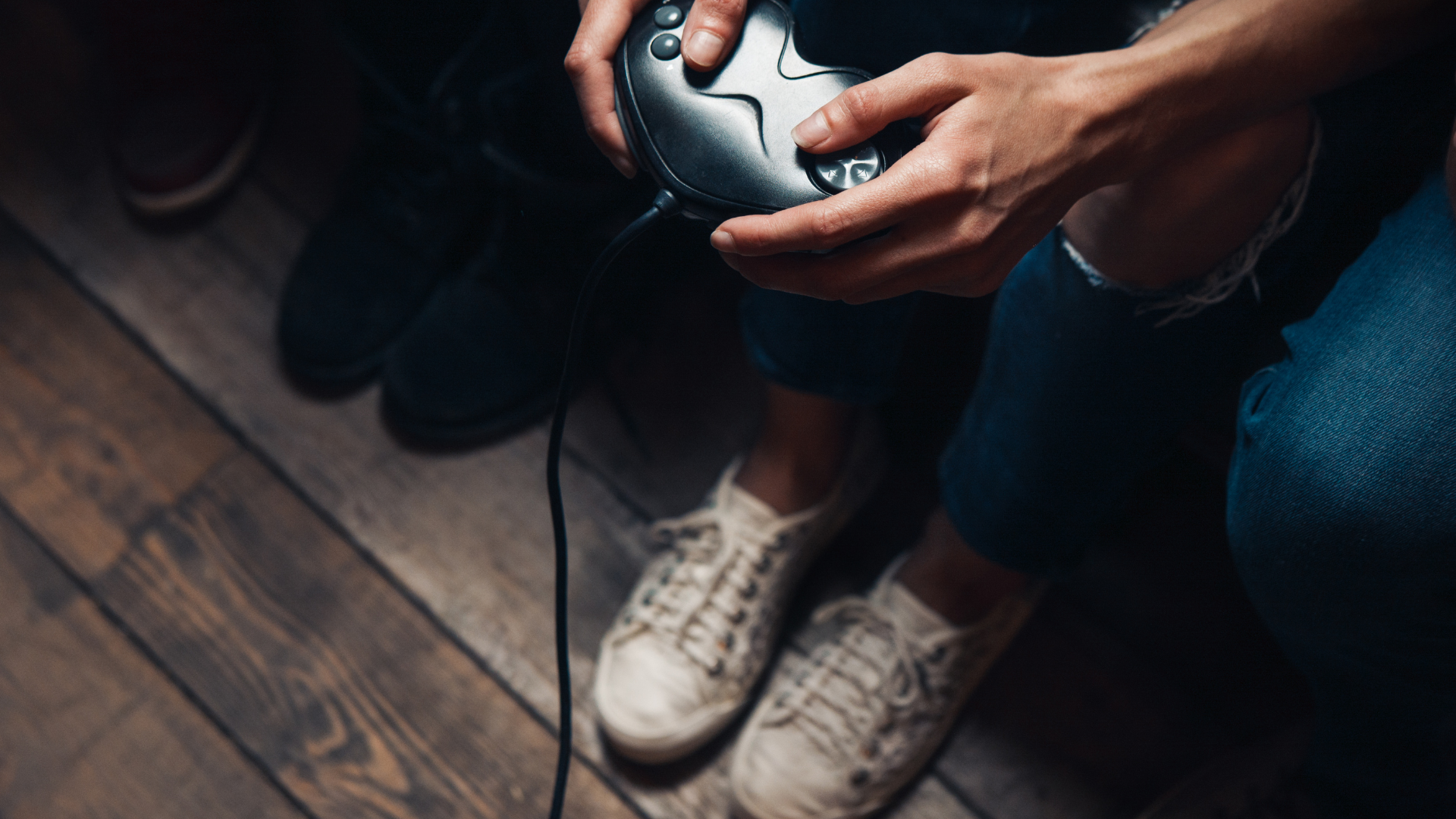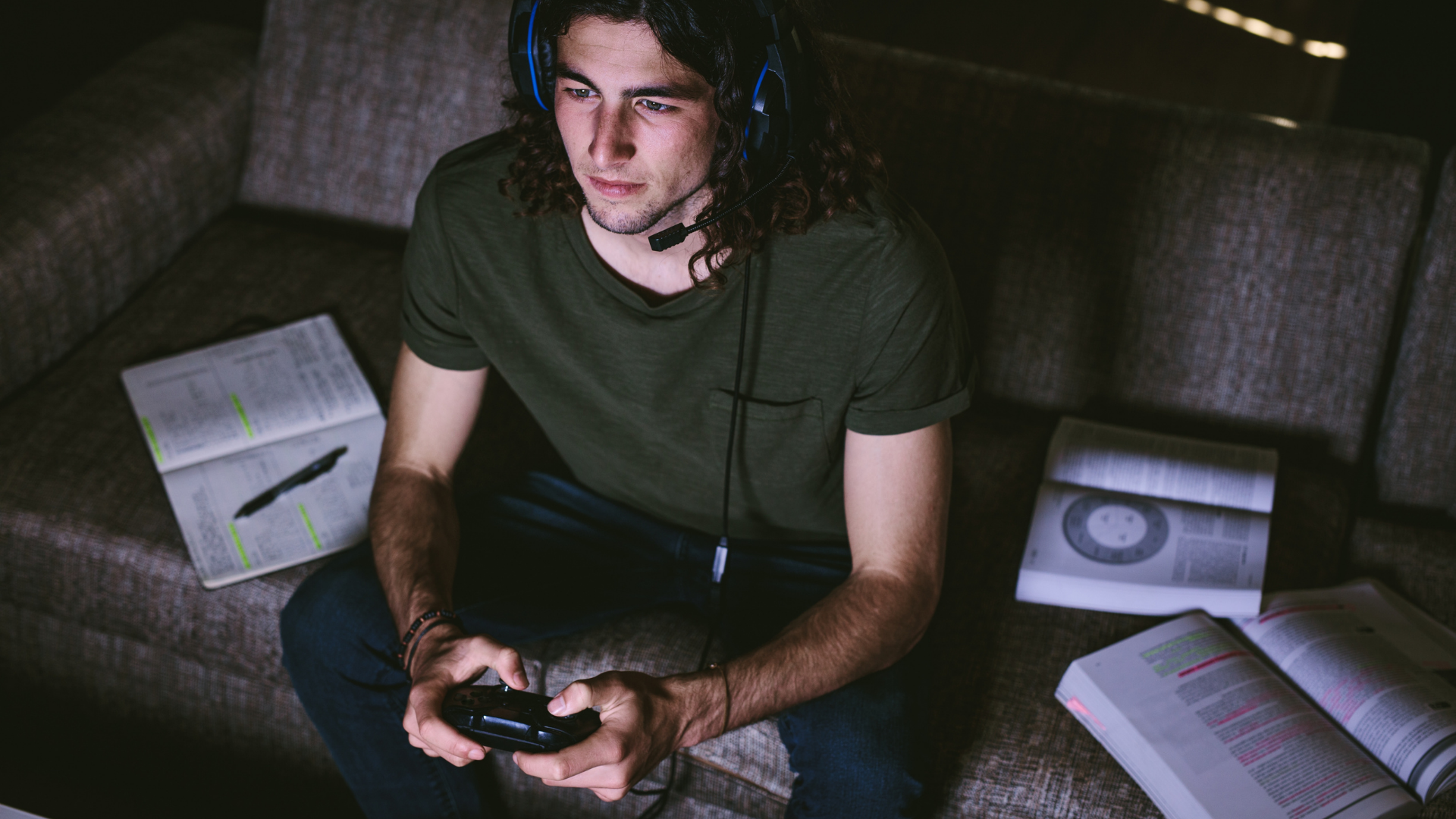Life-changing Effects of Video Game Addiction
Playing video games as a recreational activity can provide great harmless entertainment. However, what happens when our fun pass time activity becomes our only activity? Scientists and healthcare professionals are dedicating more time to discovering the negative impacts of video game addiction on our brains and overall wellbeing. In this article, we are going to run through the main life-changing effects video game addiction has on those who suffer from it.

Content
Decreased Motivation

Video games play with the reward centres of our brain. They create achievable goals with instant gratification that satisfy a lot of our needs as human beings. Our brains are wired to feel success and accomplishment when we overcome challenges or hardship. From an evolutionary perspective, this got humans to where they are today. Our ability to seek out adventure or difficult tasks in the hopes to overcome them is what shaped most of today’s society. We revere people who accomplish difficult things as this is an intrinsically valuable skill amongst humans.
However, video games negate this by creating a psychological shortcut for us. Through video games, people can find dangerous adventures, interact with friends, complete difficult tasks and gain status all without taking risks or hard graft. Being able to achieve all of this from our gaming console disrupts an addict’s motivation to seek out greater challenges in life. A common symptom of video game addiction is a lack of motivation.
Often, many people suffering from video game addiction display circumstances that demonstrate no drive to succeed outside of gaming. They have invested long hours into gaming with no real external accolades to show for it. Part of rehabilitating a video game addict is helping them to discover what they value outside of playing video games, in order to develop a more powerful and sustainable sense of motivation.
Loss of Interest in Other Hobbies

Video games are an extremely unique hobby as they satisfy many of our different needs as human beings all in one place. They provide stimulation and concentration, they allow us to interact with friends and be social, and finally, they can be relaxing and help us wind down into the evening. It is easy to see that with a hobby like this it’s easy for an addict to claim “why would you want to invest your time elsewhere?” Many video game addicts display a loss of interest in the hobbies they previously enjoyed because of the measurable growth they can observe through gaming. Compared to, let’s say, playing their favourite instrument or competing in their favourite sport.
A common problem experienced by Redditors is that they can’t find a new passion. They find all the new activities they take part in boring in comparison to gaming. The main solution to this is to find an activity that satisfies each of the areas that gaming used to:
- A stimulating or mentally engaging activity to occupy our need for hard work. Let’s say learning an instrument for example.
- A resting activity, something to help us wind down into the evening that does not require much energy.
- Finally a social activity like joining a martial arts gym or dance class to meet and interact with people of similar interests. New passions aren’t formed overnight so it is important that we allow ourselves the opportunity to develop them by taking part in new activities and staying committed.
This behaviour is also commonly exhibited due to dopamine desensitisation a major cause of video game addiction. This mechanism ties together a lot of the motivation-based symptoms of video game addiction as dopamine is a neurotransmitter responsible for reward-driven learning, cognition, movement and of course motivation. When a person plays video games dopamine is released which gives us that feel-good sensation of levelling up, beating a boss or unlocking some new gear.
The problem is when our brain is overexposed to dopamine through long hours of playing video games it becomes desensitised to it. In order to get the same level of satisfaction we once used to, we have to play more video games for longer periods of time and hence the addiction manifests. We can liken this desensitisation to a run of the mill caffeine addiction. That first cup of coffee gave us a racing heart, energy and focus like we had never experienced before. However, after years of drinking coffee, we’d be lucky to feel close to that stimulation as we polish off our third cup for the day.
The difference is with video game addiction, the consequences of being desensitised to a key neurotransmitter in our body are far worse than coffee. This ultimately leads to finding many of life’s daily pleasures to be unsatisfying and mundane compared to gaming.
Damage to Social Relationships

Most gamers these days play multiplayer games that allow them to team up or play against their friends online. Even with games that are not necessarily cooperative, people join discords related to their games in order to create a sense of community. This level of interaction often satisfies many people’s need for social stimulation.
As you can imagine video game addicts spend the majority of the time online talking to their gaming friends which sometimes leads to them taking precedence over real-life friendships. Gamers will interact primarily over the internet neglecting their need to go out and socialise. This isolation contributes to the decline in social skills, massively affecting those who are shy or suffer from social anxiety.
Eventually, in many cases, gaming with friends will take precedence over spending time with loved ones. In the online world based on anonymity, players can make themselves into whoever they want without any risk or consequences. The sense of esteem and success they gain from their peers in gaming, although positive, can quickly become detrimental if it leads to them neglecting important social relationships.
Poor Physical Health and Injury

Gaming addiction goes hand in hand with a sedentary lifestyle. Spending long hours in the seated position binging on video games comes with a myriad of health issues. Studies explain that video games have replaced many vigorous outdoor activities in people’s lives. In the case of a video game addict, most cases present with little to no physical activity. In-patient treatment centres claim that most individuals with video game addiction that come in requiring treatment are either over or underweight.
Countless hours spent in front of the screen not wanting to miss a moment has its effects on diet too. Some gamers not wanting to pull themselves away for too long, look for quick satisfying snacks like crisps, cookies and chocolates. All of these have very low nutritional value while being very high in sugars and fats. Also, thanks to food delivery apps such as UberEats and Deliveroo gamers never have to leave their seats to cook as their favourite fast food can be delivered straight to their door.
Behavioural addictions by definition are acts that are carried out compulsively to satisfy cravings despite the negative consequences. One of these negative consequences is neglecting personal hygiene. This might sound strange to some but surveys have shown that many gamers put off showering and brushing their teeth in order to play more. Poor personal hygiene not only impacts others around us but puts the individual at risk of disease and infection. This accompanied by a poor diet and lack of exercise is a recipe for disaster.
Some video games put those who play for long hours at risk of developing numerous strain injuries, postural ailments and nerve impingements. Video games that require high focus and dexterity such as, MOBA’s, fighting games and first-person shooters are the main culprits when it comes to strain injuries. The repetitive movements and working of the small intricate muscles and tendons of the wrist, fingers and forearm can cause chronic pain and weakness if left untreated. However, gaming addicts are at higher risk than most as they play for extended periods without any breaks.
Specialists explain that prevention is better than cure so taking regular breaks and stretching before playing is extremely important. However, for those affected, they recommend rest and non-steroidal anti-inflammatories such as ibuprofen for pain relief. At The Mindful Gamer, we always advise our users to consult a trained healthcare professional if they experience any severe symptoms of video game addiction both physically or mentally.
Decline in Mental Health

Game addiction manifests itself in many of the prevalent mental health conditions of this generation. Often specialists will take video game addiction into consideration when forming a diagnosis about a person’s mental state.
Video game addiction has a somewhat mutual relationship with depression; although video games are not the direct cause of depression, those who play video games are twice as likely to be depressed as those who do not. Many people who suffer from video game addiction show symptoms of depression. Their unhealthy gaming habit leads them to neglect important areas of their life such as work, relationships and personal health which leaves them feeling deeply unsatisfied and ultimately trapped.
On the other hand, those who are depressed often resort to playing video games to escape their negative emotions making it easier for them to become addicted and thus the cycle repeats itself. It has been clinically proven that video games do suppress emotions hence why many use them to escape reality.
Unhealthy gaming habits also exacerbate an individual’s feelings of anxiety. By being trapped in the behavioural addiction the sufferer is not carrying out many of the things they should be doing. With our minds’ tendency to predict future problematic outcomes we start to become anxious about the consequences of not addressing these things. Video games are not the sole cause of anxiety but addiction does, however, contribute to its development.
Another contributing factor to a decline in mental health is escapism. As we previously mentioned, people engage in video games in order to escape reality and suppress their negative emotions. However, what they are doing over prolonged periods of time is fueling their addiction. When we do not find healthy outlets or ways to deal with our emotions it can become overwhelming for us. So overwhelming in fact that we often run from our emotions, the best way a video game addict knows how to, is to play more video games.
Some theorise that this is why video game addicts often have underlying mental health issues contributing to their addiction as they use video games as a means of escape from their suffering. Cognitive behavioural therapy (CBT) is the main treatment method for video game addiction. It places a lot of emphasis on dealing with our thoughts and emotions healthily rather than running. The way we think and how we feel are very intimately linked. So, it is important to be able to peacefully exist with our negative thoughts and not give them as much power over us.
If you are experiencing any symptoms of depression, anxiety or any other mental health condition then we recommend seeking out help from a medical professional to get the help you need.
Poor Academic and Work Performance

When a person is suffering from video game addiction they lose their ability to set healthy boundaries with their gaming. The effect of this results in gaming addicts neglecting important responsibilities such as work and studies to play video games instead.
To make matters worse it is difficult for gaming addicts to find the incentive and perspective to engage in hard work as video games have damaged their motivation centres. When video games have substituted their need for hard work and concentration for what feels like an easier and more sustainable reward, it becomes a priority over important responsibilities. Studies have shown that children who play video games, on average, spend less time doing homework and perform worse on standardised testing.
Furthermore, video game addiction in the workplace can put a strain on productivity during the day. Many find themselves fantasising about getting home and playing so much so that it detracts from their performance at work. It is an amalgamation of symptoms that make it difficult to perform in the workplace. As you may understand by now, a person experiencing all of these life-changing effects caused by video game addiction can have many difficulties performing in a professional environment. Their social skills, motivation and mental health all being affected by video games can make it difficult to uphold professional relationships and meet deadlines.
How to Tell If I’m Addicted

The purpose of explaining the negative effects of video game addiction isn’t to scare you. The point is to be vigilant and understand what can happen if we leave this addiction untreated. With a recreational activity that seems as harmless as gaming, it is difficult to determine how much video games is too much.
The World Health Organisation (WHO) officially recognises video game addiction as a mental health disorder. Their diagnosis explains that individuals who show an impairment across areas of life consisting of personal relationships, family, social, educational and occupational for a minimum of 12 months as a result of gaming, are likely to be suffering from an addiction.
As a general rule, we advise that if video games are becoming a problem then there is a problem. If video games are getting in the way of certain areas of your life then it may be time to consider cutting down. Everyone’s circumstances are different hence people’s addictions vary as well as the treatments that work for them. The important point to note is that you are not alone and there are many video game addiction treatments out there.








